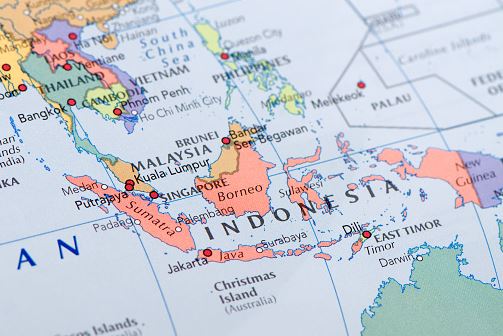Indonesian REITs
REITs holds lots of promise for Indonesia
This year will be a pivotal one for property given reforms planned by President Joko “Jokowi” Widodo with the actual introduction of real-estate investment trusts (REITs) in Philippines. Indonesia announced last October that it would encourage the creation of REITs through measures for example scrapping double taxation of property assets held in REITs. Consequently, major developers such as Ciputra and Sinarmas Land have expressed curiosity about REITs.
REITs would encourage developers to create institutional-grade assets, which may be attractive to international investors. Despite the country’s encouraging demographics, the possible lack of such assets has made it hard for international investors to place money to work here.
Ironing out the details will likely take the majority of this year. But Indonesia can emulate Singapore, which has Southeast Asia’s deepest and many liquid REIT market.
Last year, the administration removed a main obstacle to REIT investment. Previously, the government collected tax on both a house development company and its affiliated special purpose company to supervise a REIT. Now the developer and the special purpose vehicle is going to be taxed once, effectively removing a 15% tax.
This move indicates developers can rethink their strategy. For instance, Indonesian developer Lippo Team already has two REITs listed in Singapore-and now may proceed those listings to Jakarta. “Because of the government policy, we think Indonesia has excellent potential for REITs, ” Lippo Group Chief Executive James Riady said at the conclusion of October.

REITs in Singapore and the U. S. must distribute a minimum of 90% of their income to investors, making them ideal with regard to “widows and orphans” by spinning off regular and predictable money streams. Those stipulations are not yet decided in Indonesia. Actually in Singapore, the early going was mixed when REITS had been introduced.
The first attempted listing, SingMall Property Trust, was pulled after bookmakers sold only 80% from the shares. But then its developer CapitaLand repackaged the REIT since the Mall Trust, and it saw a warm reception when detailed in 2002.
REITS have benefits for developers. For one, they are able to use REITs to dispose of completed projects. Transactions must end up being handled at arm’s length-if not, the market will reflect any mispricing within the REIT’s price. Still, regulators and corporate boards must look to safeguard shareholders.
Developers can also receive substantial management fees for services to some REIT. For instance, CapitaCommercial Trust paid its sponsor S$20 million (US$14 million) last year and S$14 million in 2008, according to PwC. The sales firm notes that such fee-based income is more stable compared to property values, leading to a higher valuation.
PwC says that developers should demonstrate their commitment to affiliated REITs by extending their brand to the trust and by taking a substantial long-term stake within the listed vehicle, with a lock-up period to maintain the keeping.
In Singapore, REITs must have at least three independent directors on the audit committee, helping minimize conflicts of interest. One hopes to determine similar clauses in place for Indonesian REITs. To date, there’s been limited direct investment into Indonesian real estate by overseas traders. But Indonesian developers and landlords have attracted substantial amounts associated with capital. REITs should appeal to both institutional and retail traders, helping to significantly deepen and broaden the real-estate industry.
Indonesia aims to develop Reit market
Indonesia’s financial regulator is trying to increase the amount of listed real estate investment trusts (Reits) there since it moves to deepen its capital markets, according to a older official.
“The market in Indonesia needs many different types associated with products available, (which is why) we are pushing for that development of Reits, ” said Ms Nurhaida, chief executive of capital market supervision in the Otoritas Jasa Keuangan (OJK), or the Indonesia Monetary Services Authority.
She said that only one Reit, which owns a mall within the city of Solo in Central Java, is listed on the Indonesia Stock market. It is valued at US$40 million (S$56 million).
“A large amount of Indonesian property is being listed in Singapore – about US$3 million. I think if we can try to pull (them) back to Indonesia, it would be very helpful for the capital marketplaces and economy. ”
Lippo Malls Indonesia Retail Trust and First Reit are two such Reits right here that have properties in Indonesia.
Ms Nurhaida, who was in Singapore to satisfy with the Monetary Authority of Singapore and investors, said in a briefing on Monday that having a much more vibrant Reit market will also boost property and infrastructure development in the united kingdom, which is one of the government’s top priorities.
“We know that the financing for property development from the banking sector won’t be enough, and also the state budget, ” she said.
“So the right financing channel for this will be the capital market and the products suitable for this kind of development will be Reits. ”
Ms Nurhaida said the OJK is calling for tax rates on Reit products to become further reduced from the current 5 per cent to 1 per cent as a means of drawing more investors.
This incentive, if it goes through – possibly through the first half of the year, she said – would be as well as the removal of double taxation for portfolio investors last year, signed in October included in the government’s fifth stimulus package.
Ms Nurhaida said that developments within the capital market are moving along “a lot quicker” under Leader Joko Widodo.
She said these new measures would not drawback Singapore, one of Asia’s biggest Reit markets.
“Singapore has lots of alternatives. They don’t just have Reits from Indonesia, they possess Reits from other countries too. ”
That about 64 percent of the companies listed in Indonesia are owned by foreign investors remains an issue for the country, given that they can easily pull away and affect stability, said Ms Nurhaida.